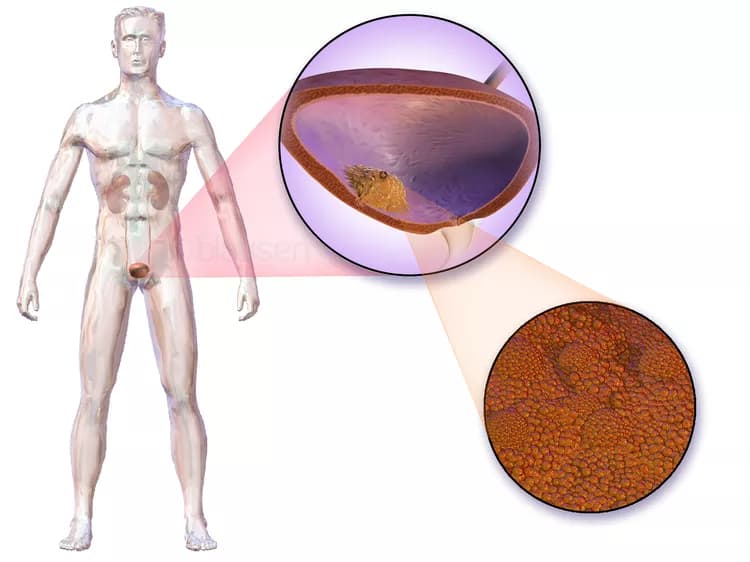
Genetic Explanation For Cancer's Higher Incidence In Males Than Females
In a new study, a group of Boston scientists, including researchers at Dana-Farber Cancer Institute, offer a genetic explanation for the age-old conundrum of why cancer is more common in males than females.
Females, it turns out, carry an extra copy of certain protective genes in their cells -- an additional line of defense against the cells growing out of control -- the investigators report in a paper published online by Nature Genetics. Though not solely responsible for cancer's "bias" toward males, the duplicate copies likely account for some of the imbalance, including up to 80 percent of the excess male cases in some tumor types, report the study authors, based at Dana-Farber, the Broad Institute of Harvard and MIT, and Massachusetts General Hospital.
"Across virtually every type of cancer, occurrence rates are higher in males than in females. In some cases, the difference might be very small -- just a few percent -- but in certain cancers, incidence is two or three times higher in males," said Andrew Lane, MD, PhD, of Dana-Farber, the co-senior author of the study with Gad Getz, PhD, of the Broad Institute and Massachusetts General Hospital. "Data from the National Cancer Institute show that males carry about a 20 percent higher risk than females of developing cancer. That translates into 150,000 additional new cases of cancer in men every year."
Despite the size of the gap, the reasons for this divergence have been difficult to discern. The historic explanation -- that men were more likely to smoke cigarettes and be exposed to hazardous chemicals in the work environment -- has proven inadequate, because even as smoking rates have dropped and occupational patterns changed, men still outpace women in developing many cancers, including some associated with tobacco use such as kidney, renal, bladder, and oral cancers, Lane said. The disparity is present among boys and girls, as well as men and women.
Previous research found that in one form of leukemia, the cancer cells often carried a mutation in a gene called KDM6A, located on the X chromosome -- one of the sex chromosomes that determine whether an individual is male or female. (Females cells carry two X chromosomes; males carry an X chromosome and a shorter, smaller Y chromosome.) If KDM6A is a tumor-suppressor gene -- responsible for preventing cell division from spinning out of control -- the mutation could lead to cancer by crippling that restraint system.
One might expect female cells to be just as vulnerable to the mutation. During embryo formation, one of the X chromosomes in female cells shuts down and remains off-line for life. A mutation in KDM6A on the active X chromosome, therefore, should lead to the same cell-division havoc as it does in males. Unexpectedly, KDM6A mutations were detected more often in male cancers. It turns out that some genes on the inactivated X chromosome in female cells "escape" that dormant state and function normally. One of those awakened genes happens to be a working copy of KDM6A. The "good" copy of the gene is sufficient to prevent the cell from turning cancerous.
The new study explored whether this phenomenon -- fully functional tumor-suppressor genes on an otherwise idle X chromosome -- underlies the broader phenomenon of cancer's partiality toward male cells. The researchers dubbed such genes "EXITS," for Escape from X-Inactivation Tumor Suppressors.
"Under this theory, one of the reasons cancer is more common in males is that male cells would need a harmful mutation in only one copy of an EXITS gene to turn cancerous," Lane said. "Female cells, by contrast, would need mutations in both copies."
To test this hypothesis, researchers at the Broad Institute scanned the genomes of more than 4,000 tumor samples, representing 21 different types of cancer, looking for various types of abnormalities, including mutations. They then examined whether any of the irregularities they found were more common in male cells or female cells.
The results were striking. Of nearly 800 genes found solely on the X chromosome, six were more frequently mutated -- and incapacitated -- in males than females. Of more than 18,000 other genes, none showed a gender imbalance in mutation rates.
Of the six genes more likely to be mutated in males, five were known to escape X chromosome inactivation, making them strong candidates to be EXITS genes.
"The fact that the very genes which are more often mutated in males are found exclusively on the X chromosome -- and that several of them are known to be tumor-suppressors and escape X-inactivation -- is compelling evidence of our theory," Lane remarked. "The protection afforded by the working copies of these genes in female cells may help explain the lower incidence of many cancers in women and girls."
One of the implications of the finding is that many cancers may arise through different molecular pathways in men and women. To circumvent the added genetic safeguards against cancer in female cells, tumors in women may employ alternate genetic circuits than in men.
To explore this possibility, the study authors recommend that future clinical studies of cancer treatments be "statistically powered" ¬- that is, involve enough patients and tumor tissue samples -- to understand whether men and women respond differently to treatment because of genetic differences in their tumors.
Materials provided by Dana-Farber Cancer Institute. Note: Content may be edited for style and length.
Disclaimer: DoveMed is not responsible for the adapted accuracy of news releases posted to DoveMed by contributing universities and institutions.
Primary Resource:
Dunford, A., Weinstock, D. M., Savova, V., Schumacher, S. E., Cleary, J. P., Yoda, A., ... & Lawrence, M. S. (2016). Tumor-suppressor genes that escape from X-inactivation contribute to cancer sex bias. Nature Genetics. DOI: 10.1038/ng.3726
Related Articles
Test Your Knowledge
Asked by users
Related Centers
Related Specialties
Related Physicians
Related Procedures
Related Resources
Join DoveHubs
and connect with fellow professionals

0 Comments
Please log in to post a comment.